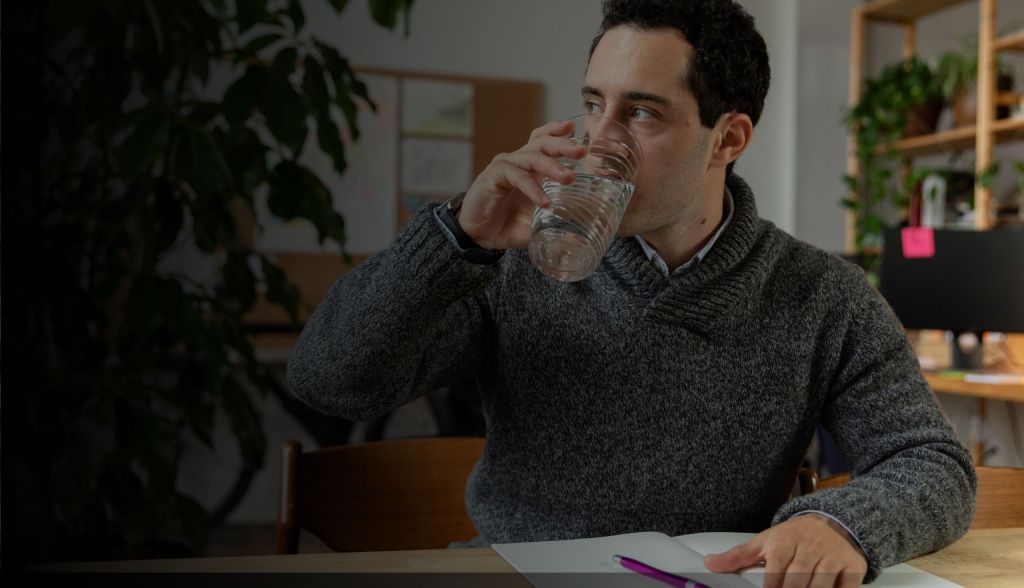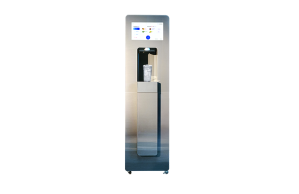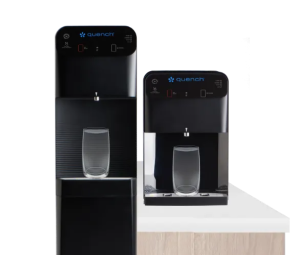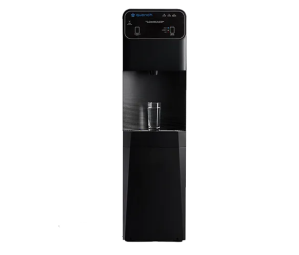
OSHA-compliant drinking water in workplaces
Access to safe, plentiful drinking water is critical for individuals whether they’re at home or work. When your employees can stay properly hydrated, they may have better cognitive function, energy and mood, leading to enhanced productivity and better decision-making. In short, what’s good for your workers physically is good for your business.
Beyond these common-sense reasons to provide clean drinking water in your workplace, laws and regulations require you to do so. Keep reading to learn about drinking water requirements for your workplace, what employees can do if you don’t provide safe drinking water and how Culligan Quench can help.
Are employers required to provide drinking water?
Yes, according to the Occupational Safety and Health Administration (OSHA), employers must provide drinking water in the workplace.
OSHA regulations for workplace drinking water
OSHA drinking water requirements are fairly specific and are covered in the regulations about sanitation and general working conditions. OSHA requirements state that:
- Employers must provide enough potable water to support all employees’ health and personal needs. That means employers must provide enough potable water for drinking, hand washing, cleaning and other necessary tasks for each employee across every shift.
- Employers must provide drinking water via specific means. Drinking water must be provided via a dedicated water fountain, single-use bottles or a covered container that can be used to fill single-use cups. You can’t rely on kitchen or bathroom sinks as a source of drinking water for employees.
- Non-potable water can be used for certain purposes, such as cleaning exterior areas, if the water meets basic cleanliness standards. However, employers must clearly mark the source of non-potable water as not safe for health or personal use.
In addition to providing enough water for employees, you may also need policies that support adequate hydration. For example, if your teams work in hot environments, such as construction job sites or factories, you may need to build in hydration breaks.
What happens if employers don’t provide water?
Providing a safe, sustainable water solution isn’t just a requirement—it’s an opportunity to improve employee well-being and reduce environmental impact.
Can employees take legal action?
Employees have some options for action if employers don’t provide adequate drinking water. First, they may report the violation to OSHA. A report could result in an OSHA investigation, and if you aren’t complying with OSHA requirements for drinking water provision, you could face expensive citations and fines. OSHA will also require you to correct the issue and may do a follow-up to ensure you are providing drinking water for employees.
State agencies might also get involved, and you could also owe fines there. Some states have stricter drinking water requirements than OSHA does, so it’s important to understand and comply with the rules in your area.
In cases where an employee is injured due to a lack of clean drinking water in the workplace, they may file a personal injury lawsuit or make a claim under workers’ compensation. For example, if you don’t provide adequate drinking water and someone becomes ill due to dehydration or suffers a heat-related illness, you might be held liable for those injuries.
Can businesses operate without running water?
Temporary water disruptions—such as a water main break—can present challenges, but businesses must still provide employees with safe drinking water. Instead of relying on single-use bottled water, companies can maintain compliance and keep employees hydrated by using bottleless water coolers with advanced filtration systems.
Bottleless coolers ensure continuous access to clean, filtered water without requiring bottled water deliveries or on-site storage.
How Culligan Quench helps ensure compliance
At Culligan Quench, we make it easy to meet OSHA, state, and industry-specific drinking water regulations with modern, bottle-free hydration solutions. Our bottleless water coolers offer:
- Fresh, on-demand filtered water—no bottles, no jugs, no waste
- Advanced filtration that removes PFAS, lead, microplastics, and contaminants
- LED-UV purification that eliminates 99.9% of bacteria for enhanced safety
- Countertop and freestanding models to fit any office size or layout
For workplaces that want to provide both still and sparkling water, we also offer innovative solutions like the 533 Touchless Sparkling Water Dispenser—perfect for offices, break rooms, and high-traffic environments.
Filtered water solutions for workplaces
Our solutions use advanced filtration to remove harmful elements from water, optimizing the health of the drinking water you offer your workforce. You benefit from filtration technology that helps remove PFAS, lead, microplastics and other contaminants, and we use LED-UV to eliminate 99.9% of bacteria in water. You can take it a level further with specialty filters for water supplies in health care facilities, labs and other locations.
Reducing costs and environmental impact
Intelligent water solutions help you reduce the cost of safeguarding your workforce and complying with OSHA regulations. Our local water expertise helps you provide water for your employees without relying on expensive single-use bottles. The right water cooler also helps you reduce how much plastic and other unsustainable materials you use in hydrating your workforce, making your processes more environmentally friendly.
Ensure your workplace meets OSHA requirements while reducing costs and plastic waste. Schedule a free consultation to discover how Culligan Quench can transform your office hydration.
Recommended products
Culligan Quench has an advanced suite of point-of-use systems that are designed to meet the needs of workplaces of all shapes and sizes. Here are some products we recommend for your business.
Twist Flavored and Sparkling Water Dispenser

Q8 Touchless Bottleless Water Cooler
Available with quenchWATER+ electrolyte water

Q12 Touchless Bottleless Water Cooler
Available with quenchWATER+ electrolyte water